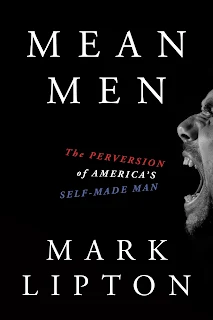Thursday, September 7, 2017
U.S. News: Bonds Are Ideal For Balancing a Portfolio
Tuesday, September 5, 2017
Forbes: Why Do We Worship Nasty Bosses?
Forbes: Twelve Reasons Why Gold is Better Than Bitcoin
WSJ: What is GARP?
WSJ: Could Some VIX-Related Funds Go ‘Poof’ in a Day?
By SIMON CONSTABLE
Some exchange-traded funds related to the CBOE Volatility Index, or VIX, could vanish just when traders might want them most.
The VIX, also known as the fear gauge, measures the cost of buying insurance against a drop in the broad market. At issue are funds that seek to profit when short-term VIX futures contracts fall in value. The VIX itself isn’t an investible product and the VIX futures don’t exactly track the VIX, but they are closely correlated. Read more here.
Thursday, August 31, 2017
P.J. Media: Here's Why a Storm Surge in Gas Prices Should Settle Down Soon
Tuesday, August 29, 2017
M.E.E.: Saudi economic future looks bleak amid falling oil prices
Wednesday, August 23, 2017
P.J. Media: Waiting Longer for an Ambulance When Seconds Count? Blame Obamacare
Tuesday, August 22, 2017
U.S. News: 3 Do's, 3 Don'ts for Boosting Your Portfolio Returns
Saturday, August 19, 2017
Thursday, August 17, 2017
Forbes: Still Sick -- Even Massive ObamaCare Subsidies Won't Help Low Income Adults
Tuesday, August 15, 2017
PJ: Panicking About North Korea's Nukes? The Stock Market Isn't
Monday, August 14, 2017
Forbes: How Esports Will Win The Future And So Will Activision
U.S. News: The Outlook for Stocks for the Rest of 2017
Friday, August 11, 2017
Forbes: Britain's Chicken and Egg Problem
Forbes: Corporate Pension Funding Gap To Hit Record This Year
Wednesday, August 9, 2017
Street Fight: How an Italian Wafer Brand Targets U.S. Moms and Millennial Foodies on a Local Level
Monday, August 7, 2017
Forbes: Why God Would Get Fired On Wall Street
If God is omnipotent, could he create a long-term active investment strategy fund that was so good he could never get fired?
WSJ: What to Consider Before You Buy an Emerging-Markets Fund
WSJ: What Is Risk Parity?
WSJ: Pakistan Status Grows In Indexes
By SIMON CONSTABLE
Pakistan has gotten a leg up from the indexing world and could get more attention from investors because of it.
In May, index provider MSCI Inc. decided to give Pakistan emerging-market status and added it to the MSCI Emerging Markets Index. MSCI had previously classified the country as a frontier market. Read more here.
Tuesday, August 1, 2017
U.S. News: Defense Stocks Are Booming and Won't Slow Down
Wednesday, July 26, 2017
Forbes: Fowl Matters -- Will Britain Really Reject U.S. Trade Deal Over Chickens?
Tuesday, July 25, 2017
U.S. News: Low Volatility Worries Some Investors
By SIMON CONSTABLE
The so-called "fear gauge" is looking low and that has some investors concerned. The matter at hand is complacency, or not worrying enough about the risks of investing.
The CBOE volatility index, or VIX, is known colloquially as the fear gauge. It measures the price that investors are willing to pay to buy insurance against a drop in the broad stock market.
"It gives you an idea of how much people will pay up for that protection," says Russell Rhoads, director of education for CBOE’s Options Institute in Chicago. "The more concerned they are, the more it goes up in value." Read more here.
Monday, July 24, 2017
Forbes: What We Can All Learn From An Art Forger
Wednesday, July 19, 2017
U.S. News: Forecasting Recessions Can Boost Your Returns
Tuesday, July 18, 2017
Forbes: Undead Again -- How ObamaCare Became The Law That Wouldn't Die
"Undead Again: The Law That Wouldn't Die."
Forbes: The Only Three Market Sectors To Watch This Year
Investors should do themselves a favor this year and focus on just three sectors. Why? Because that's where the earnings action is most likely to be, according to KKR which published its Insights report earlier this month. The paper had some other important findings as well. Read more here.
Saturday, July 15, 2017
Barron's: Hot Weather Could Light a Fire Under Corn Prices
By SIMON CONSTABLE
Red hot dry heat in the western part of the upper Midwest is threatening the corn crop and could spark a big rally.
“The extreme drought in North and South Dakota (and currently spreading into Canada) may begin to hit the western corn belt,” says a report from Best Weather, a meteorological forecaster and advisor in Sarasota Fla. Adds Matthew Davey, a commodity analyst and meteorologist for the firm: “All the models are showing warm dry air sticking around.” Read more here.
Wednesday, July 12, 2017
Middle East Eye: Egypt's economy on path to recovery
Tuesday, July 11, 2017
U.S. News: Sometimes, the Best Advice Is 'Do Nothing'
Think back to the 2016 U.S. presidential election, when markets tanked overnight as Donald Trump's victory shocked investors. The next day in the gray and the rain, anxious traders at the New York Stock Exchange rushed to the exchange floor for what they expected to be a foreboding day. Read more here.
Forbes: China's Market Regulators Appear To Be At War With Themselves
Monday, July 10, 2017
WSJ: What Are Interval Funds?
WSJ: Asia Might Beckon for Junk Investors
Sunday, July 9, 2017
No.3 Magazine: Deliberately Irreverent
Some people manage to fit more into their list of achievements than seems reasonable. Take, for instance, British-born Anthony Haden-Guest: journalist, art critic, soldier, amateur boxer, war correspondent, escapee from a WWII internment camp, and cartoonist. He also wrote The Last Party: Studio 54, Disco, and the Culture of the Night, and numerous other books.
Monday, July 3, 2017
U.S. News: Why Emerging Markets Are a Good Bet Now
Friday, June 30, 2017
Forbes: Why Obama May Be The Ultimate Victor In Healthcare?
Thursday, June 29, 2017
Forbes: Bad Economics Just Made The U.K.'s Nursing Crisis Worse
Wednesday, June 28, 2017
Forbes: New Market Regulations Will Backfire For China
Tuesday, June 27, 2017
U.S. News: The Next Bull Market for Gold May Have Just Begun
Forbes: Napoleon Hill's Advice On Success Still Relevant After Nine Decades
Napoleon Hill's classic The Law of Success was reissued last month, nearly nine decades after its first publication. Still, the lessons seem as relevant as ever. Read more here.
Forbes: What The Great Economist Galbraith Can Teach Us About Etiquette
Saturday, June 24, 2017
Barron's: Iron-Ore Prices Will Fall Further
iron-ore prices look set to tumble. as with many commodities, the issue comes down to China, where the economy is likely to slow down, thus reducing demand for a key component in the manufacture of steel. At the same time, ore inventories are climbing. Read more here.
Wednesday, June 21, 2017
U.S. News: Subprime Loans Are Haunting Investors and Auto Stocks
Tuesday, June 13, 2017
U.S. News: What Britain's Election Means for Investors
By Simon Constable
A surprising result in last week's U.K. election, which left no party with a majority in Parliament, holds possibilities for savvy investors willing to navigate a tumultuous market.
The election "takes an uncertain situation and throws it up in the air," says Jack Ablin, chief investment officer at BMO Private Bank in Chicago. Read more here.
Friday, June 9, 2017
U.S. News: Why You Should Buy Converts Now
Tuesday, June 6, 2017
U.S. News: The Case for Treasury Bonds
Monday, June 5, 2017
WSJ: How to Invest When Some Asset Classes Look Expensive
By some time-tested metrics based on corporate earnings, the U.S. stock market is overvalued. The S&P 500 index, Nasdaq and the Dow Jones Industrial Average all set fresh highs on Friday.
Read more here.

















